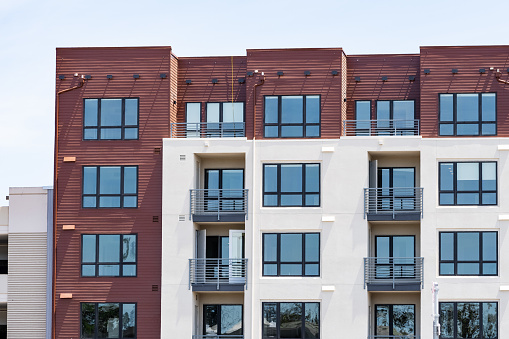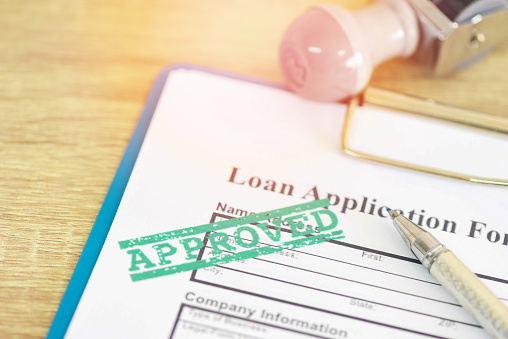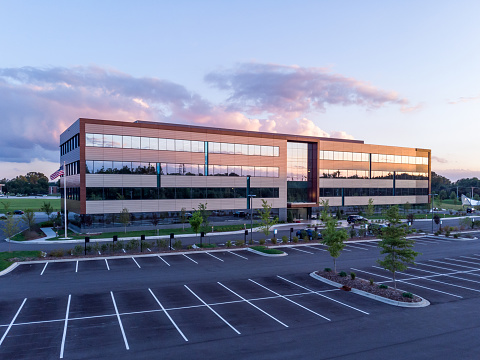
by ARTIS COMMERCIAL CAPITAL | Jul 26, 2022 | Blog
Congratulations on deciding to become a landlord. Owning an income property can be extremely beneficial, but there is a lot to learn. Unless you will be making a cash purchase, financing will be one of the first things you should familiarize yourself with. Below are a few tips to get you started.
Learn the Terminology
There are many types of income properties, so you should begin by familiarizing yourself with the terminology. Using the correct terms will help your Realtor match you to the best property and allow your lender to provide the appropriate loan options. A single-family home is a unit on its own land designed for one owner. Multifamily housing is a blanket term for a single property with multiple units, such as a duplex or apartment building. A building with five or more rental units is considered a commercial property.
Select a Lender
It is vital to select the right lender when purchasing an investment property. Don’t just look for a lender with great reviews. You should seek out someone who specializes in financing multifamily units. An experienced lender will be able to explain your loan options, break down the benefits of each, and make recommendations. If you plan to live in one of the units, you should let your lender know that the property will be owner-occupied.
Save a Down Payment
Investment properties typically require a heftier down payment unless you will be occupying one of the units. For an owner-occupied, multifamily property, you potentially can put down just 3.5%. However, the most common down payment for investment financing is 25%. It is also common for loan interest rates to be higher if you are not putting it towards a personal homestead. That means it may be advantageous to put an even larger payment down upfront. Your lender should be able to run numbers and help you with your decision.
Create an Emergency Fund
Before you purchase your investment, it’s wise to create an emergency fund. You don’t want to spend all your liquid assets on down payments and closing costs. Keeping your tenants happy is necessary for a successful business, and that means being able to quickly fix emergencies such as broken furnaces, leaky pipes, or faulty appliances.
Before you take the plunge into being a landlord, follow these steps. The more prepared you are, the happier and more successful you can be in purchasing a great property.

by ARTIS COMMERCIAL CAPITAL | Jul 19, 2022 | Blog
Opening a restaurant can be challenging — you’ll need to consider countless factors when building your business plan. Before you approach a lender for your startup funds, here are six things that should be included in your business model.
Target Demographic
Your target demographic is the population of customers you specifically plan to cater to with your concept. This isn’t a broad term; a target demographic is clearly defined and detailed. For example, your target might be women between the ages of 25 and 50 who are single mothers, have a college degree, and live in a certain county.
Location
Where you build your establishment makes all the difference in your success. If you’re in an area that’s isolated, difficult to access, surrounded by competition, or otherwise undesirable, you’ll probably have a hard time bringing in customers.
Menu
This is probably the first thing you considered when you thought about opening an eatery, but it should go beyond what dishes you want to serve. Your menu should follow a cohesive theme, include items that can cross-utilize the same ingredients, and cater to your target demographic’s tastes. It’s also a good idea to think about alternatives for customers with allergies or special diets (like vegan or gluten-free).
Sales Forecast
You’re ultimately opening a restaurant to make a living, so being able to accurately project how your sales will be throughout the year is crucial. Sales forecasts are based on a lot of factors and can be tricky to navigate, but the more you study and analyze, the better you’ll be.
Cost of Ingredients
Ingredients get expensive quickly! If you’re smart about designing a menu with dishes that use some of the same ingredients, you can reduce your overall costs when it’s time to restock. Remember: there are certain dishes you shouldn’t compromise on. A high-quality ribeye steak or Alaskan salmon might be expensive, but customers are usually willing to pay more for higher-quality meals.
Equipment Expenses
The cost of stocking a kitchen with ovens, gas ranges, hoods, mixers, sinks, dishwashers, and other equipment can easily drain your budget, so make sure you’ve got the funds in hand to pay for everything. Equipment financing is another option, although you won’t own your equipment outright until you’ve paid it off.
Building a business plan for your establishment can be challenging, but the right knowledge and a healthy attitude can help your business ultimately succeed!

by ARTIS COMMERCIAL CAPITAL | Jul 12, 2022 | Blog
Getting a small business loan can be tricky, and a lot of factors are at play when you apply for one. If you’re struggling to secure a loan for your small business, here are six things that might be holding you back,
Credit History
Lenders look at your business’ credit history and your personal credit history when considering you for a loan. If either is in bad shape, your chances of securing the loan instantly plummet. The good news is, that a bit of time and some practice with financing may be able to change this.
Business Concept
If your business concept doesn’t appear to have a successful outlook, lenders might be less inclined to loan money to you. This applies whether your business is already up-and-running or you’re trying to start the company from scratch. Either way, you can always adjust your concept and reapply.
Your Chosen Lender
Different lenders and financial institutions have different standards for loaning money, so make sure you know what your lenders look for when investing. Before you apply, speak with someone in the business to learn what you need to qualify.
Lack of Experience
Much like applying for a job, mortgage, or credit card, lenders want to see that you know what your doing; it means you’ll know what you’re doing when you’re spending their money. If your business hasn’t been afloat for very long or you’ve never opened a business before, lenders might not be interested in working with you.
Poor Cash Flow
Because you’re only borrowing money from a lender, your financial institution wants to see evidence that your business is bringing in enough money to cover your regular expenses. If your cash flow is inconsistent or insufficient to pay overhead and payroll, you’ll probably have a harder time securing that small business loan.
Incomplete Applications
Loan applications often come with mountains of paperwork, and it’s easy to overlook, lose or incorrectly fill out pages. Go back through your application with a fine-tooth comb once you’ve filled it out and make sure you’ve done it correctly and completely. You can also go over the application with someone in your financial institution before you officially submit it.
Getting a small business loan can be a challenge, but the right mindset and a little bit of time and research can make all the difference. Remember: if at first, you don’t succeed, assess what held you back, make some changes and try again!

by ARTIS COMMERCIAL CAPITAL | Jul 5, 2022 | Blog
Investors have very different needs from companies that buy property to use as an operational home. That’s why there are so many ways to finance commercial real estate. Skipping over items that are aimed at businesses acquiring infrastructure assets like the SBA’s 7a program, what do you have to choose from? How does it line up with your investment goals? These questions can be tough to figure out without experience, so let’s review the basics and put some options in mind for first-time investor financing.
1. Bridge Loans for Real Estate
Commercial properties are often in need of work before they can be occupied, and this work builds equity into the property, so it makes sense to avoid financing it with a long-term instrument if you’re going to do quick improvements. For those holding property for long-term income, a bridge loan provides a low-cost opportunity to close early and get the building ready for tenants before refinancing into something that has low monthly payments to optimize your time to a return.
These loans are even more impressive for short-term investors because you can do the improvements, remarket, and close before the principal payoff at the end of the loan. That lets you finance most if not all of the property’s purchase cost, saving most of your capital for the improvements.
2. Traditional Commercial Mortgages
These are the products the SBA’s 7a program is based on, but they do not typically require you to occupy the property, so they are a favorite for long-term purchases like apartment buildings that you will use as regular monthly income sources. You can also find private loans with similar low-interest rates and amortizing structures. They have less stringent credit requirements, but also slightly lower LTVs. Still, they are an accessible choice for first-timers who do not have perfect credit.
3. Cash Out Financing Options
The third type of loan requires you to have an asset with equity you can refinance, and it allows you to take cash out of that asset and put it to work on another investment. Asset-based capital loans and stated income commercial real estate loans are both prime examples of this type of financing. This is useful if you have a property like a home you have paid off and you want to use it to finance a real estate deal. Those with existing income properties branching out into new types of investment also find them very useful because they can be used to cover renovations as easily as property purchases.




